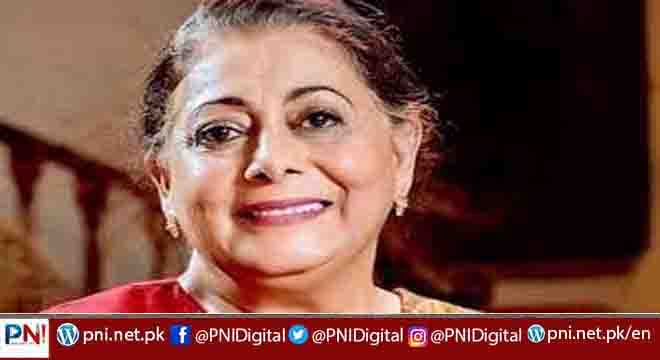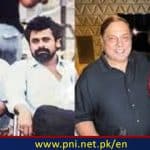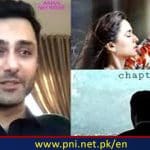LAHORE 15 Dec (Online): Simi Raheal is a known face and voice of the entertainment industry. From speaking out against injustice in society to questioning the authenticity of award shows, the veteran has much wisdom to offer to her audience. In a conversation with Fuchsia Magazine, Raheal talked about the importance of cultural identity, rising harassment, and supporting roles in TV serials.
On being asked about her role as an activist, Raheal quickly credited it as one of the perks of being a celebrity. She shared how becoming a personality onscreen helps a person get their voice heard by people. She said, “The perk of being a celebrity is that you have a platform to share your concerns with people. Even if some individuals don’t understand the message you are trying to put across, it’s still worth it. The few that are getting your message are more important.”
The Sabaat actor noted that this responsibility extends to everyone in the industry. “Celebrities have a responsibility on their hands which they don’t fulfil. We live in an era where people believe the content they see onscreen and mirror that in their real lives. So writers, actors, directors, channels, production houses: everyone is accountable to produce thought-provoking storylines.”
Raheal felt viewers actually love watching stories that entail more than just family politics. “It is a lie that people love watching such horrible content. Look at the success of The Legend of Maula Jatt, it took them ten years to create such a masterpiece because it wasn’t an awful script.”
Moving on, Raheal urged her industry colleagues to produce films and dramas that truly reflect society. “Show the audience more diversity and the true colours of our society because that is what defines us. This is the nation that watches the most pornography. It’s a place where rape and gender-based violence occur like having a cup of tea. So, why are we not showing our true selves? The answer is simple, we haven’t figured that out ourselves.”
The Sammi actor then pointed out that a lot of confusion arises from the fact that our cultural identity is still vague and yet to be fully established. “We are a nation that carries a lot of baggage due to colonial rule, therefore we need to understand that we still don’t have a developed identity.”
Rahael also shared her stance on the transition in Pakistan from the 1970s to the current date. She said, “Pakistan is a failed place to reside in now. There is so much fundamentalism and a very hardcore perception of what is right and wrong. The lack of acceptance in our country feels so wrong and absurd. There’s no tolerance or endorsement of diversity either.
As a nation, we should work on building more honesty, appreciation, and empathy among ourselves.”
The Ruswai actor elaborated on her point by sharing how life has gotten more unsafe for women in Pakistan. “The fabric of our society totally changes as we grow old. For example, When I was enrolled in NCA in the 1970s, I could wear a pair of blue jeans and a fitted T-shirt and walk from the institution to my house. Even then, catcalling was common, but the streets were still safe. I did not feel threatened,” shared Raheal.
She concluded the conversation by highlighting how politics plays a huge role in transforming societies. “It wasn’t considered weird to wear such clothes back in the day. It didn’t affect anyone’s culture or threaten any religion. Religion and culture are very personal things that define us, but that is not the way it works here. I will refrain from speaking about politics, but it does play a huge role in transforming societies for the better or worse. And that’s exactly what happened during the 80s in Pakistan.”
On another interesting note, Raheal also spoke about slowly transitioning away from the spotlight and accepting supporting roles.”For me, it wasn’t really a difficult task to go for secondary roles because I’m an actor, not a star. The supporting cast is a very important place as well. If you are a hero or heroine, that’s great, but no narrative is built on just these two roles. Drama is a collective effort of everyone involved and sadly people don’t recognise that here,” she lamented.








